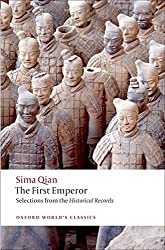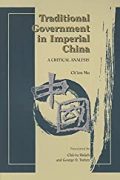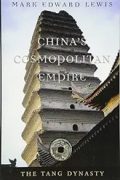
Rating: 7.8/10.
In the year 1587, nothing really major happened in China, but in a lot of ways, this year marks the point of no return for the Ming dynasty. Even though there’s still another 50 years until the dynasty collapses, it’s already clear by this point that the bureaucracy and institutions are no longer able to govern effectively and respond to change.
The emperor Wanli ascended the throne in 1572 at the age of nine. Obviously you can’t expect a child to govern a country, so the power was ritualistic and symbolic, and the actual decisions were made by grand secretary Zhang Juzheng. The emperor’s life is less free than a commoner: every day, he has to endure long ceremonies and he’s not allowed to have direct control over anything, as that’s considered improper. Wanli is actually an intelligent man, but he grew disillusioned with his role as emperor, and through neglect of his duties and indecision, allowed the empire to decline. The author paints the picture as it not being Wanli’s fault, but his way of rebelling against the system.
Zhang Juzheng was in many ways an effective minister, he tried to enact tax reforms and generally kept things in order. However, he lived an extravagant lifestyle and critics attacked him after his death; the emperor believed he was cheated while he was young and naive and stripped Zhang Juzheng of all his honors. The problem was that the bureaucracy didn’t have the technical ability to collect taxes efficiently at the local level, and a top-down directive disrupted the status quo and made him many enemies. His successor Shen Shixing was more mellow and seen as being unable to control the emperor to do his duties.
The Ming dynasty was based on the four Confucian classics, but this led to a moralization of politics. Different factions would attack each other as being immoral, thus are unable to reach any compromise; worse is that the Confucian classics were vague, listing a lot of examples of what actions are proper, but no principled approach of deciding morality. This led to all the officials being two-faced: their speech would quote moral principles to support doing something, but their actual reasons and motivations were different. The salary that officials are supposed to receive would put them in absolute poverty, but in reality, everybody received other unofficial sources of income. Thus everywhere in the government there was a massive gap between theory and practice. No individual could change the system, any attempts would be ridiculed and met with resistance.
Overall, a very detailed look at the systemic cause of the Ming dynasty collapse, a period that’s seldom covered in English history books. It has a somewhat discouraging tone: the empire is on the decline, the problems are widespread and systemic, so that nobody, not even the emperor, can do anything except watch hopelessly. Two things that I disliked about this book are: (1) all the names are in the Wade-Giles romanization system instead of Pinyin, and (2) there’s not much connection to events outside of this narrow timeframe, eg: how the Qing conquered the Ming, who were the Japanese pirates, how these events affected modern China, etc.



